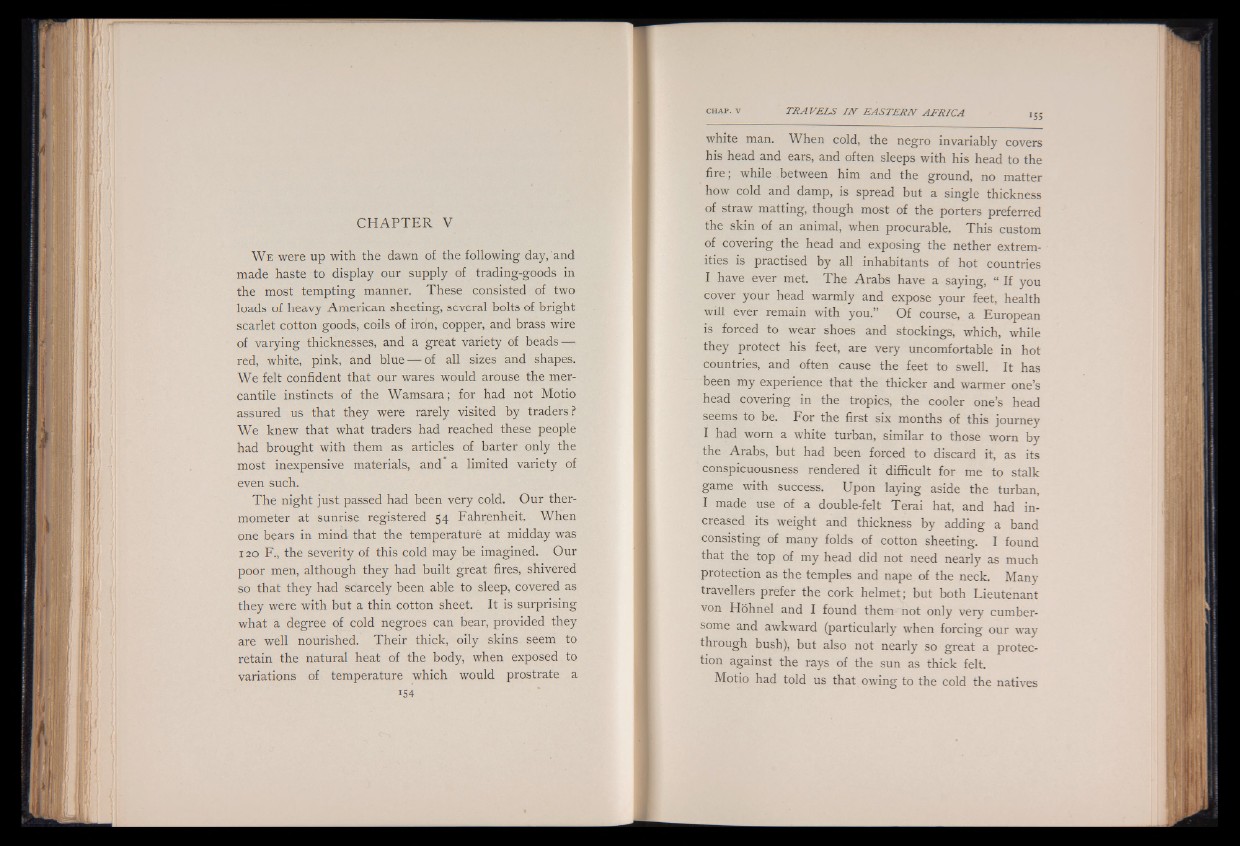
CH A P T E R V
W e were up with the dawn of the following day, and
made haste to display our supply of trading-goods in
the most tempting manner. These consisted of two
loads of heavy American sheeting, several bolts of bright
scarlet cotton goods, coils of iron, copper, and brass wire
of varying thicknesses, and a great variety of beads —
red, white, pink, and blue — of all sizes and shapes.
We felt confident that our wares would arouse the mercantile
instincts of the Wamsara; for had not Motio
assured us that they were rarely visited by traders?
We knew that what traders had reached these people
had brought with them as articles of barter only the
most inexpensive materials, and a limited variety of
even such.
The night just passed had been very cold. Our thermometer
at sunrise registered 54 Fahrenheit. When
one bears in mind that the temperature at midday was
120 F., the severity of this cold may be imagined. Our
poor men, although they had built great fires, shivered
so that they had scarcely been able to sleep, covered as
they were with but a thin cotton sheet. It is surprising
what a degree of cold negroes can bear, provided they
are well nourished. Their thick, oily skins seem to
retain the natural heat of the body, when exposed to
variations of temperature which would prostrate a
iS4
white man. When cold, the negro invariably covers
his head and ears, and often sleeps with his head to the
fire; while between him and the ground, no matter
how cold and damp, is spread but a single thickness
of straw matting, though most of the porters preferred
the skin of an animal, when procurable. This custom
of covering the head and exposing the nether extremities
is practised by all inhabitants of hot countries
I have ever met. The Arabs have a saying, “ If you
cover your head warmly and expose your feet, health
will ever remain with you.” Of course, a European
is forced to wear shoes and stockings, which, while
they protect his feet, are very uncomfortable in hot
countries, and often cause the feet to swell. It has
been my experience that the thicker and warmer one’s
head covering in the tropics, the cooler one’s head
seems to be. For the first six months of this journey
I had worn a white turban, similar to those worn by
the Arabs, but had been forced to discard it, as its
conspicuousness rendered it difficult for me to stalk
game with success. Upon laying aside the turban,
I made use of a double-felt Terai hat, and had increased
its weight and thickness by adding a band
consisting of many folds of cotton sheeting. I found
that the top of my head did not need nearly as much
protection as the temples and nape of the neck. Many
travellers prefer the cork helmet; but both Lieutenant
von Hohnel and I found them not only very cumbersome
and awkward (particularly when forcing our way
through bush), but also not nearly so great a protection
against the rays of the sun as thick felt.
Motio had told us that owing to the cold the natives